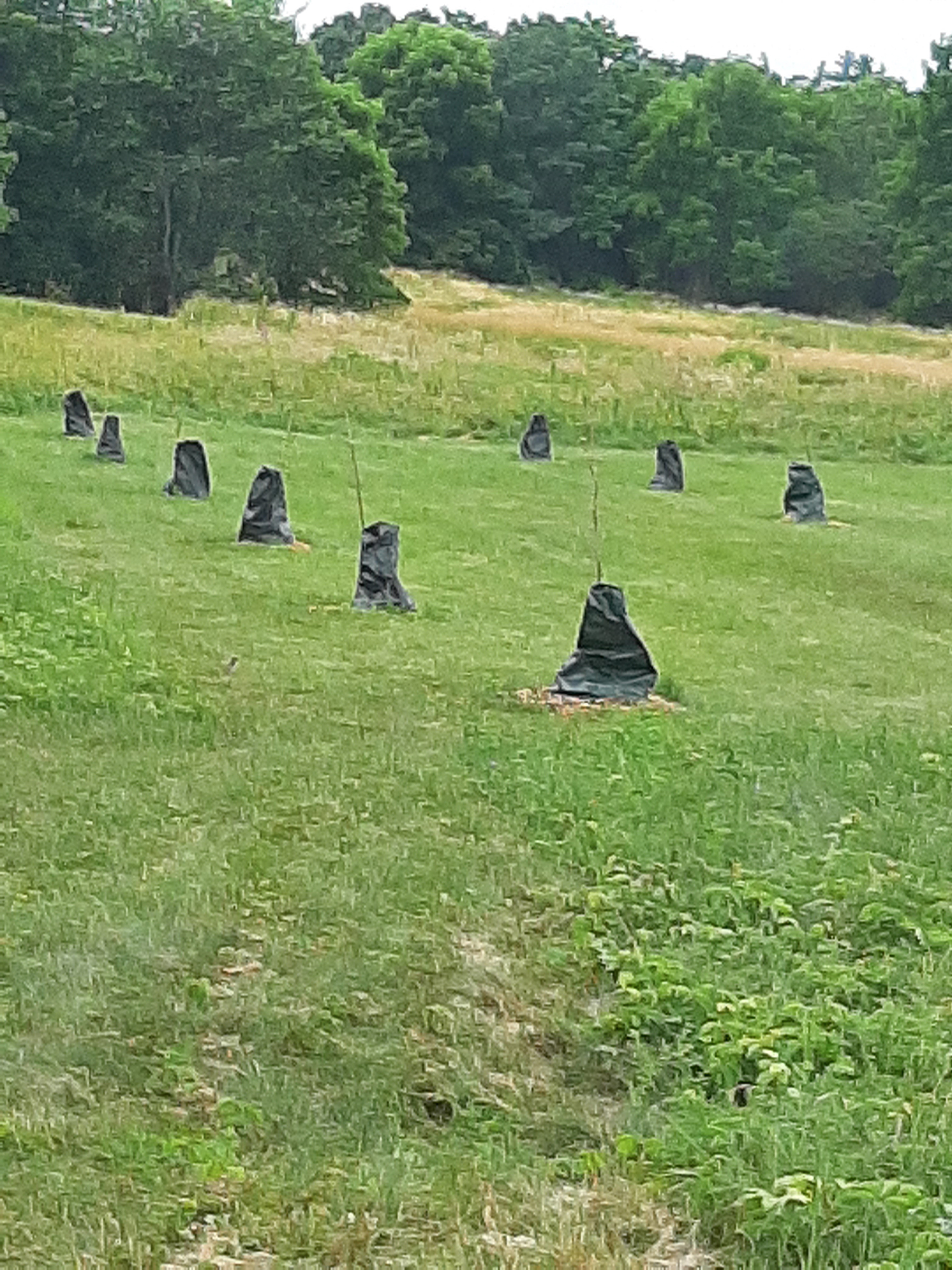There are many apple orchards in Massachusetts, most of which are located north and west of Boston. We are fortunate to have a number of them within a 20-mile radius – Dowse Orchards in Sherborn, The Big Apple in Wrentham, Fairmount Fruit Farm in Franklin, and Lookout Farm in Natick, to name a few. These are family-owned enterprises. Very few orchards in the Commonwealth are municipally owned. As of June of this year, Norwood became one of the few. According to Town Manager Tony Mazzucco, the new orchard is a Pilot Project.
When asked about the genesis of the orchard, Mazzucco could not pinpoint whose idea it was. Nor could Al Goetz, Conservation Agent, who said it was “an idea that’s been floating around for quite some time” seemingly without a champion. Mazzucco recalled conversations with Paul Halkiotis, Director of Norwood Planning and Economic Development, members of the Conservation Commission, and sustainability advocates who thought it was a good idea.
Once the Conservation Commission learned that the Town Manager supported the project, they sprang into action, ordering trees from Stark Bro’s Nurseries and Orchards. The Department of Public Works planted the trees in mid-June. Watering bags were added a week later by Cheryl Doyle, Conservation Commission member and Ramanda Morgan, a town employee and a Massachusetts Master Gardener, both of whom worked on tree selection. Volunteers from the community will fill the water bags each week to ensure the trees have sufficient water to establish a strong root system.
The orchard sits on conservation land off of Mylod Street across from the Norwood Community Garden. Because it is designated conservation land, the area could not be used for active recreation, but there was a consensus that the land use should benefit the entire Norwood community.
“We could have planted other trees, but we decided to plant apples instead.,” Goetz said. “We hope to pick fruit from the trees in the future, but if all [the orchard] does is support wildlife in the end, it’s a good thing and not a huge investment.”
“With under 50 trees, all of which are dwarfs, there won’t be huge amounts of fruit,” Goetz said, “We’re not looking to provide a commercial product.”
Mazzucco stated the Town is really not sure how the orchard ultimately will be used and reiterated that it is a pilot project.
“The intent is that residents will be able to pick fruit from the trees, but that will obviously depend on production,” Mazzucco said. “Taking that one step further, it will also depend on whether the trees survive: their planting, local deer-browsing, mice and rabbits, along with the insects and diseases to which they are prone (apple maggots, plum curculios, green fruitworms and codling moths).”
Chemical treatments and pesticides are not allowed on conservation land. Because of this, Morgan and Doyle focused on selecting varieties of trees that do well in New England and are disease-resistant. Plans for how the orchard will be managed going forward have not yet been developed.
Mazzucco made the point that the orchard is a “restoration of the land.” This statement recognizes the most significant benefit this orchard brings to the Town. Much has been said about carbon emissions and how they are hurting the environment. Trees of all kinds help to mitigate this problem. Young trees absorb carbon dioxide (CO2) at a rate of 13 pounds per tree each year. Trees reach their most productive stage of carbon storage at about 10 years at which point they are estimated to absorb 48 pounds of CO2 per year. Aside from the fruit it would produce, Norwood’s orchard could sequester up to 2,304 pounds of carbon each year if all trees survive. That’s over a ton of carbon. And that’s something to shout about!
Establishing a town orchard on conservation land fits into the Town’s vision of creating a culture of sustainability that will be fully integrated into our community “for the benefit of present and future generations.” The Town will be recruiting community members to volunteer on its soon-to-be-implemented Sustainability Commission. We’ll report on this new commission in a future article.

Issue Date:
August, 2019
Article Body:
